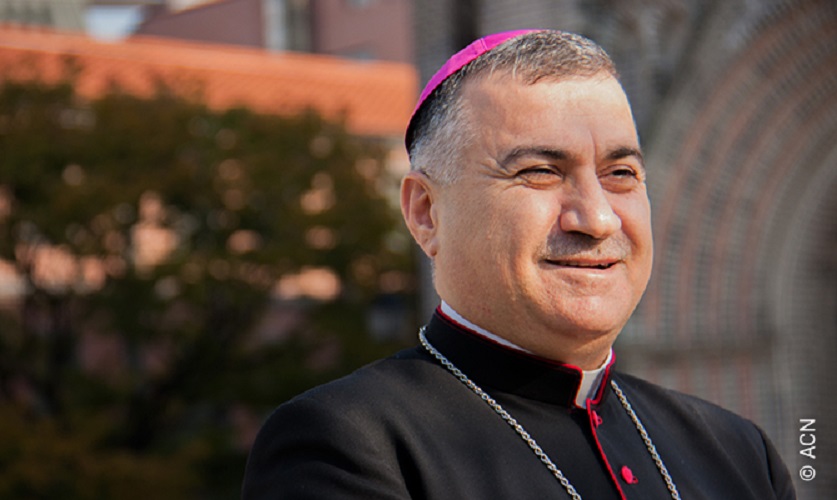Archbishop Bashar Warda, who will host Pope Francis on his visit to Iraq, hopes for more awareness on the part of the Muslim majority for the country’s Christians.
A few days before the arrival of Pope Francis in Iraq, the expectations of the local Church are high. “We hope that his visit to the country will raise awareness about Christians in Iraq. Respect for this group amidst the Iraqi people will grow”, the Chaldean Catholic Archbishop of Erbil, Bashar Warda, told the papal foundation ACN International on Tuesday. Warda will host the Pope during his visit to Erbil on March 7. “People in Iraq know little about us. We hope there will be more awareness that we are not guests but original inhabitants of the country.”
Above all, Archbishop Warda hopes that the Pope’s meeting with the head of the Shiites in Iraq, Grand Ayatollah Ali Al Sistani, will have positive effects. “Iraq has a Shiite majority. Al Sistani is highly regarded as a man of peace and as someone who condemns the pervasive corruption in the country. The meeting of the two men will certainly have a positive impact on the image Shiites have of us Christians.” The inter-religious meeting in Ur in southern Iraq is also of great importance, he said. “The Pope going to Ur, which is revered as the home of Abraham, will show that Jews, Christians and Muslims have a common father in Abraham.”
Warda acknowledged that there was also criticism of the visit. “Some religious fundamentalists are behaving in a hostile manner on social media towards the Pope’s trip. Anything that comes from the West is considered a crusade by them. For these people, the Pope is the king of crusaders, who comes to the country as a missionary.” Young people in Iraq in particular, however, know that Pope Francis is bringing a message of peace and brotherhood for all people, Warda said. “People have noticed how often and compassionately the Pope has spoken about the situation in Syria and Iraq.” He is therefore welcomed as a guest of the country, Warda told ACN.
The archbishop dismissed fears that a deterioration in the security situation due to terror could jeopardize or lead to a postponement of the visit planned for 5-8 March. “The only thing that can lead to a postponement of the visit is the pandemic. The Pope has made that clear. The Pope knows where he is going. He is deliberately coming to an area marked by war and violence to bring a message of peace.”
Christians in the country are aware that the visit under pandemic conditions would come with many restrictions, Warda explained. “Of course, our faithful would have liked the Pope to visit more places. But everyone understands that this is not possible because of the situation.” Recently, the number of new infections has risen again in Baghdad as well as in Erbil. A second wave of COVID is rolling over the country, Warda said. Hence, there will be strict limits on the number of participants in public services. “For the big mass in the Erbil stadium, we have issued only 10,000 tickets, although it could seat 30,000 people.” He added that there are also plans to screen people for COVID symptoms before they board the buses. “Nevertheless, everyone is excited that the Pope is coming”, Warda said.
The archbishop praised the cooperation with the state authorities in the Kurdish autonomous region as excellent. “The authorities are taking the Pope’s security very seriously, with 10,000 security personnel deployed for the purpose. The media will broadcast the events in high quality. This shows that there really is coexistence here. I hear the same message from Baghdad.”
Pope Francis will be the first Pope ever to visit Iraq. In addition to meetings with state representatives and representatives of other religions, the visit will focus on the country’s Christian minority. After the liberation from IS and with the help of ACN, tens of thousands of Christians have returned to their homes, which they had to leave in 2014 after the advance of the jihadists. ACN has supported the country’s Christians during the years of their flight as well as the subsequent reconstruction of homes destroyed by IS with a total of more than 48 million euros.










